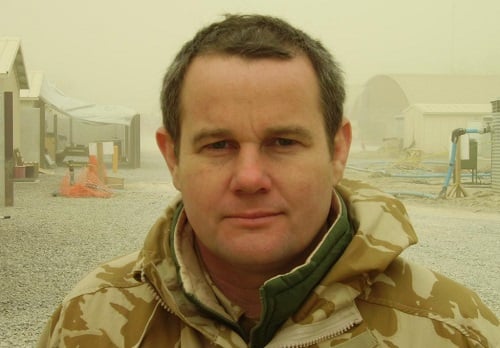

The security risks practice at Lloyd’s of London insurance broker Price Forbes has just turned a month old. A trio of recruits, including Alistair Fox OBE (pictured), paved the way for the formation of the unit.
Here the new security risks head shares with Insurance Business how he transitioned from the Army to insurance territory. The former Royal Engineer bomb disposal and search expert also talks about the approach he plans to develop and what’s at the top of his agenda at the independent wholesale brokerage.
Following your decades of British Army experience, what made you foray into the world of insurance?
I networked into the market through some ex-military colleagues and a few social events around Leadenhall. It was not an area I had considered, indeed I was not thinking of leaving the Army; however, I was persuaded to have a look at some options and was subsequently recruited as the COO of the credit, political & security division at JLT Specialty. The Lloyd’s Military Network is very active in this area and helps many people leaving the forces to find work in the insurance market.
What was the transition like?
I found the transition to be easy as the role was very much a leadership and management role, allowing me to play to my strengths while learning the nuances running a business within the insurance sector. The team at the broker was extremely supportive, enabling me to progress to deputy CEO of the division within three years of leaving the Army.
What would you say are the biggest lessons from that part of your life that you bring to the industry?
Understanding people and how teams operate has been critical in my new working environment. My leadership experience has allowed me to influence team culture and structure to generate efficiency and morale.
I have been struck by how important these issues are in a civilian environment and how much you can influence the performance of a team through good leadership, empowerment, and structural clarity. It is an area many managers think they excel at; however, I have seen examples where poor leadership has really impacted negatively on team performance, revenue generation, and staff retention.
Successful insurance practitioners are not always good leaders. Teams need to understand this and structure in a way that identifies, nurtures, and generates leadership at all levels as they grow.
As head of the new security risks practice at Price Forbes, what are your immediate priorities?
The immediate priority is to provide support to the extensive Price Forbes network of global clients through providing advice on innovative new security policies that can be structured to provide pre-emptive cover to reduce the risk of an insured event damaging their reputation or being managed as an unexpected crisis. Focusing on how this can add value to the client’s insurance portfolio, reducing premiums, and protecting deductibles is our main effort currently.
In the long term, what do you envision for the business as well as the wider sector when it comes to taking on security-related threats?
My main role in the latter part of my career in the Army was spent countering Improvised Explosive Devices (IEDs). In this area we developed a doctrine that focused on what we termed “left of the Bang” – i.e., identifying, mitigating, and interdicting, in a structured way, anything that contributed to the emplacement of an IED – as well as dealing with the device and the aftermath.
I would like to develop a security risks approach that will provide support to clients in a similar way, preventing the need to claim on larger policies and getting “left” of the insured event through a structured programme of support provided through insurance, while maintaining the ability to deal with the incident and the aftermath.
If you weren’t in insurance, where else do you see yourself leveraging your expertise?
My natural habitat would be within the defence and security sector where I could use my military experience in security sector reform, defence procurement, or expeditionary bomb disposal operations in support of humanitarian causes – however I am enjoying broadening my experience, building on the skills I developed during my time in the Army to add value to the innovative and growing security risks environment.
